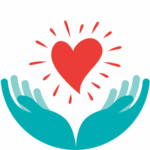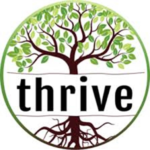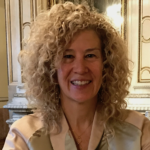By Kathryn Hayward, MD and David L. Thomas, Jr., JD
(para leer una versión actualizada de esta entrada en español, haz clic aquí)
 We are writing to you from Mallorca, Spain, where we live. The Spanish government just declared a country-wide quarantine (at least 15 days) that will begin tomorrow. Spain has been guided by the experiences in Italy, South Korea, China and other places. Here is a Boston Globe article about Italy: A Cautionary Tale.
We are writing to you from Mallorca, Spain, where we live. The Spanish government just declared a country-wide quarantine (at least 15 days) that will begin tomorrow. Spain has been guided by the experiences in Italy, South Korea, China and other places. Here is a Boston Globe article about Italy: A Cautionary Tale.
Because many people have been contacting us with questions about how to care for themselves during these difficult times, we would like to share with you some International Integrators health thoughts and recommendations for living with the coronavirus crisis and taking on the project of learning to thrive in this new world.
We refer to this as a crisis because the coronavirus pandemic has rapidly changed each of our lives and, for many people, that creates feelings of crisis. People do not usually or comfortably embrace sudden change. In fact, most of us hate sudden change. We are creatures of habit, and we like to maintain our habits.
One of the challenges in life is learning how to do more than survive…learning how to thrive, to live a meaningful, connected, joyful life. We often can’t control our external environments and being in the midst of a pandemic really makes that clear. However, we can work with our internal environments, learning to accept what cannot be changed in the external environment, and changing what we can.
 The country of Italy has been quarantined for some days. And some home-bound Italians are flooding their external environments with joyful music.
The country of Italy has been quarantined for some days. And some home-bound Italians are flooding their external environments with joyful music.
Singing and dancing are ways of moving forward and thriving within external environment constraints. If we take on the project of learning to thrive, we have some control over how we choose to adapt to changes in our external environment.
We draw upon our creativity, our inventiveness, our humor, our free will as we face the reality of our current situation and feel the emotions that emerge. We may feel anxious, frustrated, angry, blaming. We may be scared and collapse. We may look for silver linings in black clouds. All of these are legitimate, common and understandable ways to respond to the coronavirus crisis.
We can also choose to cultivate qualities that allow us to adjust to and take on the project of learning to thrive in this new world of ours.
To cultivate qualities that will help us thrive, here are some questions we can ask of ourselves…
- How do I describe my new world?
- How do I and others feel about our new world?
- How may I learn and grow and thrive in this new world?
How do I describe my new world?
I avoid physical touch. How I interact with others has changed. I engage in social distancing.
- I no longer shake hands with people.
- I avoid two-cheek kisses (relevant to European greetings).
- I avoid hugs, holding hands—really any physical contact outside my home or with anyone whom I believe may be infected or carrying coronavirus.
- I don´t go to large events/gatherings.
- My ability to travel may be constrained.
- I don´t interact with people in the same way I once did at work or in social settings.
I deep clean my home and assume that I need to take precautions outside my deep-cleaned home. Sneezed or coughed viral particles linger in the air and on surfaces, including clothes, for long enough to infect us when we breathe them in or touch them and then touch our faces.
- I wear gloves when possible. If I don’t have disposable gloves, I wear washable winter gloves and clean them when I am home. If I’m not wearing gloves:
- I use a tissue or my knuckle to touch common surfaces outside of my home such as light switches, elevator buttons, etc.
- I open doors with my closed fist or hip. I do not grasp the handle with my hand unless there is no other way to open the door.
- I use disinfectant wipes when they are available, including wiping the handle and child seat of grocery carts.
- I touch the gasoline dispenser and public bathrooms with paper towels, kleenex or use gloves.
 I wash my hands with soap for 20 seconds frequently and always when I return home (handwashing is the most effective way to clean my hands). I use a greater than 60% alcohol-based hand sanitizer after touching surfaces when I am out in the world and washing my hands isn’t an option. If I don’t have either, I’m diligent about not touching my face.
I wash my hands with soap for 20 seconds frequently and always when I return home (handwashing is the most effective way to clean my hands). I use a greater than 60% alcohol-based hand sanitizer after touching surfaces when I am out in the world and washing my hands isn’t an option. If I don’t have either, I’m diligent about not touching my face.- I frequently clean my mobile phone with a disinfectant (diluted bleach or alcohol). I disinfect my phone and then only use it after I’ve washed my hands.
- I cover my face with a mask or scarf to remind myself not to touch my face.
- I no longer wear my outdoor shoes in the house.
- I daily wash my clothes that I have worn outside my home.
Thrive Stories:
Enjoy this short music video, sent out by the Vietnamese Health Department, giving a message of action, calm, fun, connection, collaboration and joy. English subtitles have been added.
That music video sparked a TikToc dance challenge (another short boisterous video)
Gloria Gaynor recorded a TikToc video of herself washing her hands to her song “I Will Survive”, challenging others to record themselves washing hands to her song for at least 20 seconds.
How do I and others feel about our new world?

I see that my interactions with people are dominated by their and my feelings about the coronavirus crisis. Everyone is talking about it.
- I recognize that people have different ways that they communicate their feelings about the uncertainty and disruption caused by the coronavirus crisis. Many are feeling fear. Many are in pain.
- I understand that fear and pain make people sad and angry. Some lash out and blame. Some express their feelings with violence and threats.
Thrive Story: A colleague of ours, Denise, works in a health food store. Since the coronavirus crisis, the store has had an increase in stressed people searching for “natural cures.” The store has been understaffed. One day, Denise was eating her lunch of hot soup at the register because there was no one else to work the register during her lunch break. The steam from the hot soup made her nose run and she blew her nose, then sanitized her hands before ringing in the purchases of the next customer. The woman looked at her in horror, saying, “You just blew your nose near me! You are going to give me coronavirus! If I get sick, I will sue you and the store owners!” Denise took a deep breath and, in a calm voice, reassured the woman that the hot steam from her soup caused her to need to blow her nose. The woman could not be reassured, launching into a litany of fears and anger, mostly focused on her age (84) and how she had just lost all of her life savings in the stock market crash. Denise kept breathing deeply while processing the woman’s purchases and listening kindly to her, offering reassuring words. After the woman left the store, she engaged in mindful breathing and Jin Shin Jyutsu finger holds (reference below) to further clear the energy that the woman had sent her way.
 What can I do?
What can I do?
- I take responsibility for my feelings. I acknowledge them, talk about them, express them, clear them.
- I let others take care of their feelings.
- I listen generously when people invite me to do so.
- I am gentle and compassionate with myself and others
- I know that fear and pain are driving behavior, and that fear and pain are often eased by compassion and kindness. I move in the world poised to diffuse fear and pain if I encounter it. Even though I avoid physical contact, I express kindness with my smile, my caring expression, with gentle humor, with comforting words.
- I decide not to engage in conflict when it is invited. It takes two to have a fight.
- When necessary, I shield and protect myself from others’ blame and violent behavior.
- I understand that stress hinders our immune systems from functioning at their optimal levels. There is a lot of scientific evidence to support this statement (references below).
To support my immune system:
- I get enough sleep.

- I eat whole, plant-based foods.
- I drink plenty of fluids (water, herbal teas, juices).
- I drink at least one cup of miso soup per day (recipe below).
- I move my body mindfully and regularly.
- I enjoy being in nature.
- I relax.
- I listen to music.
- I dance.
- I sing.
- I simplify my routines and expectations.
- I read.
- I play games.
- I cultivate attitudes of being nimble and flexible, of being able to respond quickly to change.

- I enjoy films, YouTube videos and podcasts in the privacy of my home.
- I laugh and joke around easily. I have fun.

- I meditate.
- I practice mindfulness.
- I engage in other forms of self-care (Jin Shin Jyutsu, for example).
- I pace my exposure to the 24/7 news cycle and take other measures to protect myself from stressful information that does not contribute to my project of learning to thrive in this new world.
If I become ill, I stay in touch with my doctor and follow the 7 things which further support my immune system (from Kathryn’s blog post referenced below).
I do all of the above, plus:
- I drink lots of fluids (water, herbal teas, juices). I will know I am drinking enough if I am peeing every 30-60 minutes.
- I do hourly steam treatments. I boil a pot of water. Once boiled, I add 1-2 drops of eucalyptus oil and tea tree oil, and breathe in the steam for 1-2 minutes every hour.
- I run a vaporizer next to my bed while I am sleeping. I regularly disinfect it.
- I take plain guaifenesin at the maximum dosage for my age. I make sure that the preparation only has guaifenesin and no other ingredients.
- I listen to my body and rest a lot.
- I increase my drinking of miso soup to three times daily (recipe below).
- I engage in Jin Shin Jyutsu self-care (see blog for photo and description, and references below).
The new coronavirus symptoms are cough, fever and shortness of breath. It may cause diarrhea. For those of us whose immune systems are occupied by managing our diabetes, lung disease, heart disease, cancer, AIDS and other chronic conditions, the symptoms may progress to bronchitis or pneumonia. Difficulty breathing and other worsening symptoms are reasons to call your doctor for advice.
How may I learn and grow and thrive in this new world?
Write out this question and put in on your bathroom mirror.
When you wake up each morning, look into your eyes in the mirror and ask this question of yourself. Starting your day with this question will open your heart and your mind to possibilities that you may not have yet thought of. Asking “How?” invites the flow of new ideas, new learning opportunities, new people, new solutions, which we call synchronicities, to enter our lives. Maybe now you find time to start or increase your meditation practice, Jin Shin Jyutsu, yoga or other self-care.
We encourage you to keep a journal, form small videoconference groups, engage in therapy if you need to, and stay in touch with people with whom you can explore this question.
We, and all of us in International Integrators, send you our warmest embrace and love during these uncertain and challenging times. We look forward to hearing about your project of thriving in this new world. We are here to help in any way we can.
Feel free to share this post if you feel it would help someone you know.
Additional Resources to Consider
On Stress, Immunity and Illness: When Kathryn was in medical school between 1982 and 1986, an Ohio State University School of Medicine research team led by Janice Kiecolt-Glaser and her husband Ronald Glaser revealed links between medical students’ exam schedules, their levels of immune-fighting cells (T-cells and NK cells) and their pattern of developing upper respiratory illnesses. Their research showed that when the students had the stress of studying for exams, the levels of their immune-fighting cells in their blood decreased, and they were more likely to get sick. Their work inspired decades of research that shows links between stress and illness. For your interest, here are some scientific articles and a recent New York Times article.
Stress Weakens the Immune System (American Psychological Association, 2006)
Modulation of Cellular Immunity in Medical Students (Journal of Behavioral Medicine 1986)
Can I Boost My Immune System? (New York Times, March 10, 2020)
Jin Shin Jyutsu Self-Care:
Book: Alice Burmeister, “The Touch of Healing”
Video: Jin Shin Jyutsu Finger Holds
Miso Soup Recipe:
Boil water. Place wakame seaweed strands in the bottom of a mug. Add boiled water. Melt into the water a heaping teaspoon of unpasteurized miso (fermented at least 18 months). Stir and enjoy! Miso has helpful probiotics that can help keep the vital immune system in your gut balanced and strong.
The Seven Supports:
Dr. Hayward’s blog post on the Seven Supports from the International Integrators website.
 Kathryn Hayward, MD co-founded and developed International Integrators because she loves to collaborate with others who share her vision for global Integrative Health. She brings to International Integrators her experience in the practice of conventional medicine as a primary care internist at Massachusetts General Hospital and Harvard Medical School, and in the practice of Integrative Health. Kathryn marvels at the power of collective, conscious action on the part of like-minded individuals to manifest change, and loves contributing to that action.
Kathryn Hayward, MD co-founded and developed International Integrators because she loves to collaborate with others who share her vision for global Integrative Health. She brings to International Integrators her experience in the practice of conventional medicine as a primary care internist at Massachusetts General Hospital and Harvard Medical School, and in the practice of Integrative Health. Kathryn marvels at the power of collective, conscious action on the part of like-minded individuals to manifest change, and loves contributing to that action.
 David L. Thomas, Jr., JD co-founded and developed International Integrators in concert with his passionate desire to initiate change in the way that we care for ourselves and each other, and the way we interact with and affect our natural environment. He brings his background as an attorney and businessman, and his expertise in nutrition and plant-based cooking and eating, to the collaborative effort to identify, mentor and support leaders in Integrative Health. David holds a BA in Spanish Literature from Haverford College, a JD degree from Georgetown University and a certificate in plant-based nutrition from the T.Colin Campbell Center for Nutritional Studies and Cornell University.
David L. Thomas, Jr., JD co-founded and developed International Integrators in concert with his passionate desire to initiate change in the way that we care for ourselves and each other, and the way we interact with and affect our natural environment. He brings his background as an attorney and businessman, and his expertise in nutrition and plant-based cooking and eating, to the collaborative effort to identify, mentor and support leaders in Integrative Health. David holds a BA in Spanish Literature from Haverford College, a JD degree from Georgetown University and a certificate in plant-based nutrition from the T.Colin Campbell Center for Nutritional Studies and Cornell University.


